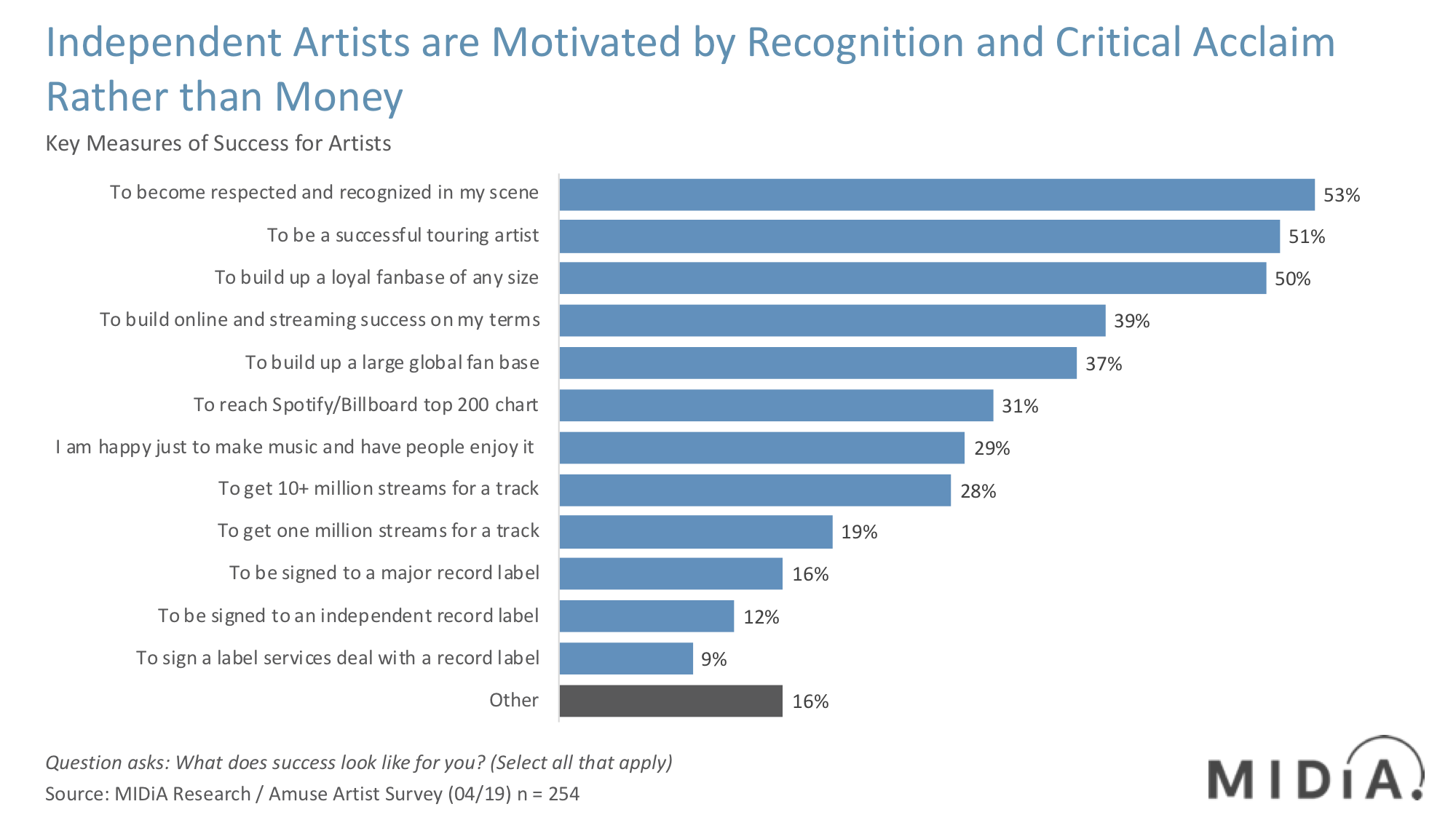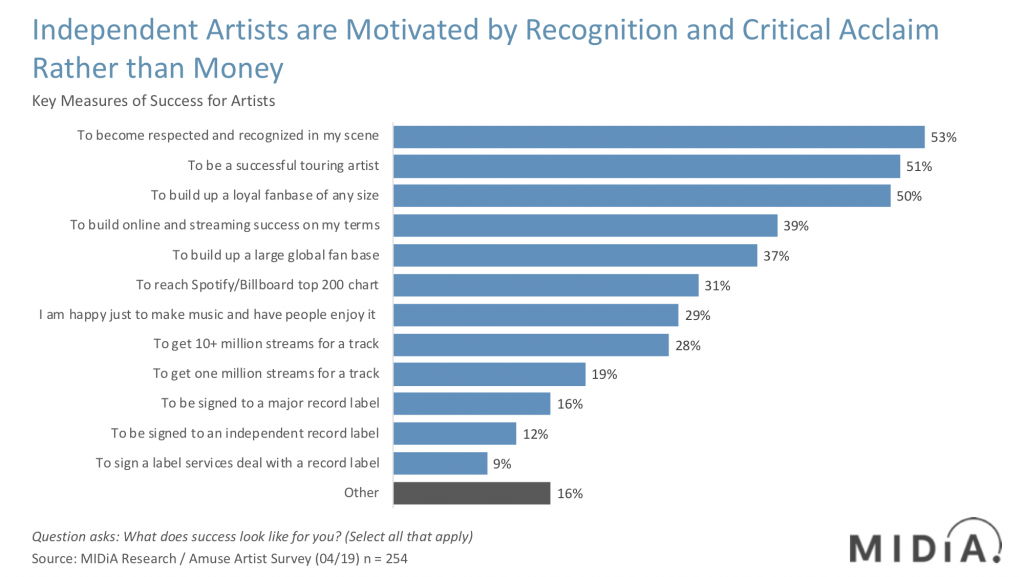Independent artists: The age of empowerment


MIDiA is proud to announce an exclusive new report in conjunction with Amuse – Independent Artists: The Age of Empowerment. The report is based on a global survey of independent artists that we conducted earlier this year, with respondents from all of the world’s continents. The full report is immediately available for free download here.
Here are some of the key themes and findings of the report:
The science fiction author William Gibson once said, “The future is already here, it just isn’t evenly distributed.” He wasn’t writing about the rise of independent artists, but he could have been. We are seeing the beginning of what may be the biggest paradigm shift in the music business in decades, but as with all big changes, we won’t appreciate the true magnitude of it until further down the road when more of the pieces have fallen into place.
In the old music business, artists had a limited number of choices when planning their careers. They could sign with a record label and hope they were the one in ten that made it, or they could treat music as a hobby, contenting themselves with playing the local bars and clubs. Then a UK rock band did something in 2001 that little known to them would act as the genesis for an entire new way of being a recording artist. After having split with record label EMI, Marillion decided to ask their fans to pre-order an album they hadn’t made yet. More than twelve and half thousand fans did so and with the resulting hundreds of thousands of dollars they recorded Anoraknophobia. Music crowdfunding was born. Marillion had just shown the artist community that there was a new way to be a successful recording artist.
Featured Report
Music catalogue market 2.0 Bringing yesterday’s hits into the business of tomorrow
The music catalogue acquisition market bounced back from a slightly cooled 2023 with a new fever in 2024. What is being bought is changing, however, as investors look to diversify their portfolios and uncover new growth pockets in an increasingly crowded market.
Find out more…Fast forward 18 years and artists now have more tools, services and choices than at any previous time in the history of recorded music. An entire industry has evolved to enable artists to plot their own unique paths through the fast-changing music industry. From finding a vocalist, through remote mastering, to funding, marketing and distribution, artists now have the tools at their disposal to create their own virtual record labels.
Forget digital service provider (DSP) disintermediation; artist disintermediation is the real threat
Record labels often worry about streaming services disintermediating them, but they should
be more concerned about artists disintermediating them themselves. With all of the tools and services at their disposal, artists have the ability to create their own bespoke labels. In this ‘label as a service’ world, record labels have to define a new role for themselves, one in which artists will place ever greater focus on retaining creative and commercial independence. Signing a traditional record label deal is now just one option among many for artists.

- Culture first, cash second. Artists’ definition of success is very much culture first, then cash. They are looking for respect and recognition first and foremost. With this respect and recognition, they can become viable touring acts with the chance to earn loyal fan bases.
- Labels are not a prerequisite.
- Artists now view labels very much as one possible means to an end. Less than a third of label artists consider it important to get signed to a record label, while for independent artists (i.e. those without record labels) the rate rises to a little over a half.
- Earnings are the biggest obstacle.It is just as well that artists take a culture first, cash second attitude as most artists should not expect to earn a living from music without something close to divine intervention. Nearly three quarters of independent artists earn less than $10,000 a year from music, and average incomes are also low even for signed artists.
- Artists’ income streams vary widely. Streaming income, along with earnings from live performances, make up the majority of artist revenues today. For independent artists, streaming is now their primary source of income at 30%.
- Signing to a label is not enough for artists’ financial security.Being signed to a label often does little to ease an artist’s financial woes. Overwhelmingly, both independent and label artists do not feel that they earn enough from music to not worry about their financial situation.
- Don’t give up the day job: Most artists have plural careers.Whether signed to a label or not, over two thirds of artists feel they will have to keep up other work alongside making music in order to make ends meet.
- The age of artist empowerment has arrived.Despite the challenges of a music career, the vast majority of artists now feel they have more control over their careers than ever before. With their choices both increasing and improving, nearly two-thirds of artists have a positive outlook about their career paths.
- Artists want to listen.The modern day artist has flexibility and freedom to make choices – but how do they make the right choices? While the vast majority of artists do not want to lose creative control, most of them are open to influence and advice about their creative direction.

The discussion around this post has not yet got started, be the first to add an opinion.